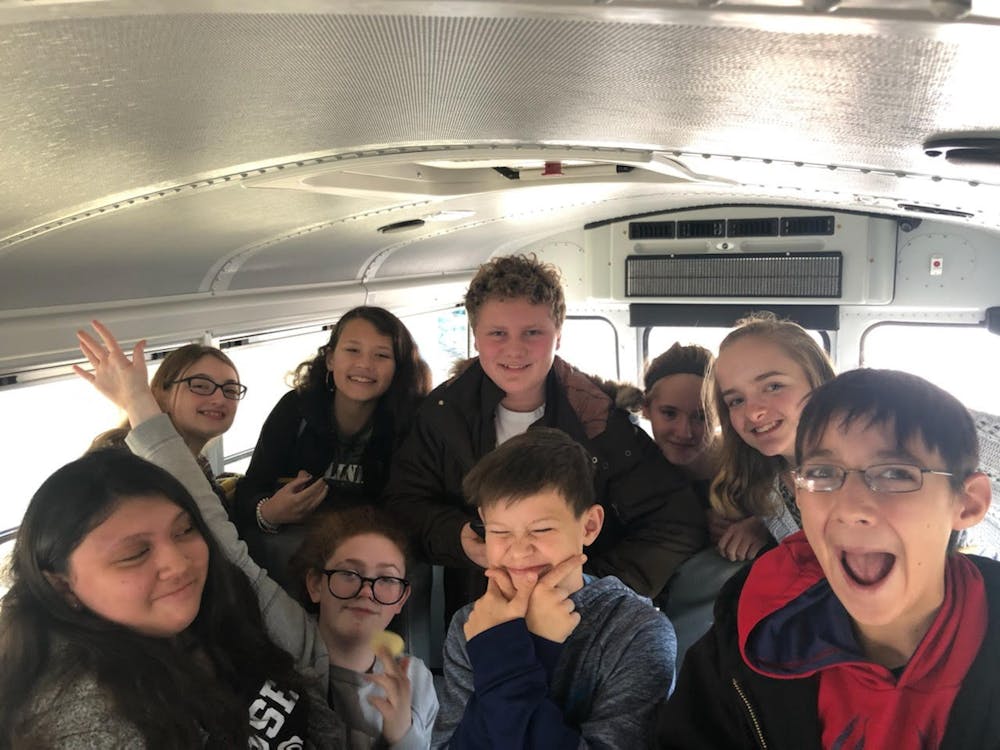The word opera typically conjures up images of wealth, elegance and ornate theaters– not kids.
Bloomington nonprofit Reimagining Opera for Kids educates K-12 students about opera by providing learning materials and performing for schools. The program also gives professional musicians a chance to practice performance skills.
Director and founder Kimberly Carballo said ROK commissions operas and performs them for students. The organization reaches out to local composers and librettists, who write dialogue and lyrics.
Carballo is the coordinating opera coach for IU’s Opera Theater. Carballo said she founded the organization 12 years ago to address what she felt was a lack of school arts programs. She also wanted to give Jacobs students more opportunities to practice performing.
“It just seemed like a good solution for everybody to work with some of the singers in Jacobs on their audition materials and take it to schools,” Carballo said.
Amy Williams, a vocal performance doctoral student and the organization’s production manager, said ROK has expanded beyond Jacobs students. Members of the community have performed with the group too, including a couple of nine-or ten-year-olds and someone around 70 years old, she said.
Carballo said they started with four schools and now work with about 35 locations, including schools, parks and other kid-friendly locations within an hour radius of Bloomington. The next two performances will take place in late March at the WonderLab Museum of Science, Health & Technology and the T.C. Steele State Historic Site.
The 2019-2020 season’s opera is “Mooch the Magnificent,” commissioned by the group eight years ago, Carbello said. The music was composed by Bloomington resident Lauren Bernofsky with libretto by Scott Russell Sanders, author of "The Engineer of Beasts," the book that "Mooch the Magnificent" is based on.
According to ROK’s website, the opera is about a zoo in the future, where all the animals are robots. Mooch, the main character, is an orphan whose job is to fix the robots when they are damaged, but she instead reprograms them to be more wild.
Karen Bennett, a music teacher at Arlington Heights Elementary School and Marlin Elementary School, said that her students love that ROK’s performances are live.
“The drama and dance and costumes and literature and live music come together in a way that’s not accessible for most public school children,” Bennett said.
ROK also gives teachers materials to teach students about opera such as story mapping worksheets, podcasts about opera basics and a Jeopardy game.
Nathan Davis, a Jacobs professor and the organization’s board president, said ROK provides teachers with a list of the Met’s live broadcasts in movie theaters, and the Met provides tickets for the screenings. Music and choir classes go on a field trip with ROK to a movie theater and see the opera of their teacher’s choosing.
Carballo said ROK partnered with the Metropolitan Opera last August. The Met typically partners with school districts. ROK is one of only two national partners that is not, Carballo said.
ROK also uses what Williams calls “maker spaces," where the kids participate in activities related to the Met performances. The organization brought someone who formerly worked in props and costume design in the IU opera department to teach the students about backstage aspects of opera. They also took a tour of IU’s Musical Arts Center with the opera department.
Carballo said the Met’s productions can include sensitive topics. The most recent live broadcasts included “Madame Butterfly,” which deals with suicide, and “Porgy and Bess,” which discusses domestic violence.
Williams said that with “Porgy and Bess,” teachers asked parents for permission to take the students on the field trip. They left a bit before the end because of adult content toward the end of the show. The teachers explained that students should have a conversation about the show with their parents, Williams said.
“It’s a really useful portal to talk about topics that otherwise can be kind of hard to get a handle on,” Carballo said. “I think that probably highlights some of the best parts of what we do as artists.”
Williams attends some of the field trips and said she thought the students reacted well to the performances.
Carballo said any reaction, negative or positive, is good because it means a student is engaged.
“Obviously, we would love for them to go away with a heightened love for live performances,” Carballo said of students, “but really any reaction at all is a good reaction.”






